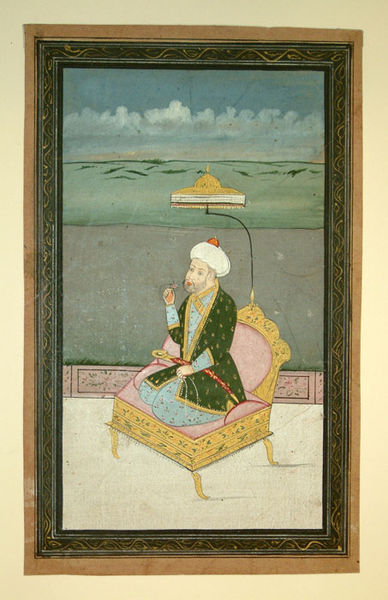Abu Sa'id Mirza was the Ruler of the Timurid Empire during the mid-fifteenth century, and he was the paternal grandfather to the Mirza Zahiruddin Muhammad Babur Badshah Ghazi whos founding the Moghul Empire in South Asian Subcontinent in 1526 AD, Abu Sa'id born a minor prince of the Timurid dynasty, Abu Sa'id quickly established himself as the most prominent among his warring relations. Over the course of two decades, he reunified much of the Timurid Empire, which had become fractured in the aftermath of the death of his great-uncle Shah Rukh. However, Abu Sa'id's hopes of restoring the empire to its former extent at the time of Timur ultimately failed after he was killed during an invasion of what is now western Iran.
A Mughal representation of Sultan Abu Said Mirza
Jesus and Muhammad introduced by an angel in paradise. Timurid, 1466.
The Timurid dynasty, self-designated as Gurkani, was a Sunni Muslim dynasty or clan of Turco-Mongol origin descended from the warlord Timur. The word "Gurkani" derives from "Gurkan", a Persianized form of the Mongolian word "Kuragan" meaning "son-in-law". This was an honorific title used by the dynasty as the Timurids were in-laws of the line of Genghis Khan, founder of the Mongol Empire, as Timur had married Saray Mulk Khanum, a direct descendant of Genghis Khan. Members of the Timurid dynasty signaled the Timurid Renaissance, and they were strongly influenced by Persian culture and established two significant empires in history, the Timurid Empire (1370–1507) based in Persia and Central Asia, and the Mughal Empire (1526–1857) based in the Indian subcontinent.
Timurid dynasty



